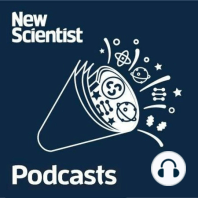32 min listen

Weekly: Cloned rhesus monkey lives to adulthood for first time; fermented foods carry antibiotic resistant bugs; an impossible cosmic object
Weekly: Cloned rhesus monkey lives to adulthood for first time; fermented foods carry antibiotic resistant bugs; an impossible cosmic object
ratings:
Length:
23 minutes
Released:
Jan 19, 2024
Format:
Podcast episode
Description
#233A cloned rhesus monkey named ReTro is said to be in good health more than three years after his birth – a landmark achievement, as no other rhesus clone has lived to adulthood.. However, the method used to clone ReTro used fetal cells, a method that cannot create identical clones of adult primates. The method could still be useful for medical research. Fermented foods are meant to be healthy and good for our guts, but there’s a problem. Researchers have found antibiotic resistant bacteria in a small pilot study of some fermented foods. In vulnerable people, these bacteria could damage the gut and cause more severe health issues – and be resistant to antibiotic treatment. This ancient practice may need an update to deal with a modern problem.Is it a black hole, is it a neutron star? No it’s a… mystery. A strange object has been found in the depths of space that could be the smallest black hole we’ve ever detected, or a neutron star that’s larger than we thought possible. Either result would be interesting, offering exciting new insights into our understanding of the universe.A new type of computer promises to be more efficient than your standard PC. Normal Computing’s device uses the laws of thermodynamics – and tiny, random fluctuations in electrical current – to compute. And maybe most importantly, it’s already been used to solve some difficult problems.Tardigrades are some of the hardiest creatures on the planet. These microscopic “water bears” can survive harsh conditions by entering a deep, dehydrated state of hibernation. And now researchers have figured out how they do it.Hosts Timothy Revell and Christie Taylor discuss with guests Sam Wong, James Woodford, Alex Wilkins, Karmela Padavic-Callaghan and Chen Ly. To read more about these stories, visit newscientist.com. Hosted on Acast. See acast.com/privacy for more information.
Released:
Jan 19, 2024
Format:
Podcast episode
Titles in the series (100)
#25: Coronavirus effects on children, and on other diseases; changing the way you sit could add years to your life; supercrops for a climate-changed world by New Scientist Podcasts